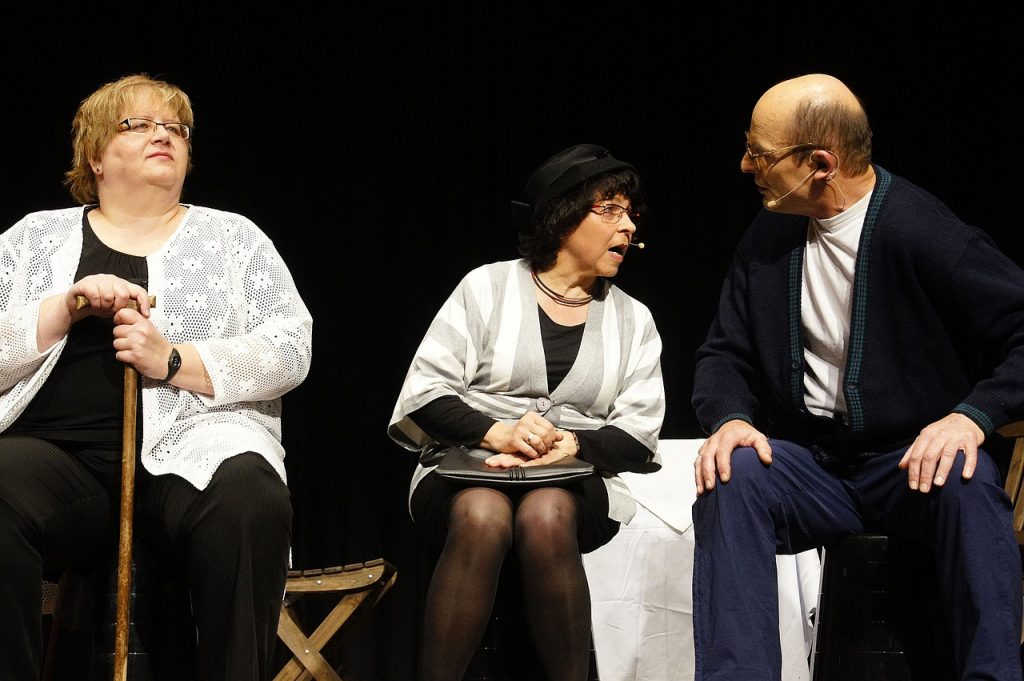
I am interested in what it takes to start and maintain a movement. I suspect starting a movement is relatively easy. For anything where there is a degree of novelty or curiosity, most people will jump in and have a look. But there is a difference between jumping in and having a look and then becoming a long-term participant.
This may be similar to the psychological effect of New Year’s resolutions. Everyone starts with great intent. But the practical task of doing things, whether it’s attending, contributing, etc., can become increasingly difficult if the initial curiosity and motivation are not maintained into routine habit. And I suspect that the thing that bridges the gap from a one-time event into a sequence of events has something to do with value or values.
What persuades us that a group of people should become a gang, that an event should become a program, or that a task should become a routine? I suspect there needs to be sufficient novelty to want to keep coming back, but sufficient familiarity that something retains the essential ingredients that provoked our curiosity and engagement in the first place.
I suspect this is an important consideration intended to shape and change management, where early euphoria can quickly run out of steam if there isn’t ownership, accountability, and perceived value and values that bind and engage through affiliation or shared interest or common goals.
I think this goes beyond the simple “what’s in it for me?” which are substantively a bribe or recompense for our time and contribution. And perhaps it’s something more than that—rather “what does this mean for me? How does this add value to my thinking, feeling, being, purpose, intent, and growth.”
The challenge, then, is to really look to the alignment of the interests of the participants, the aim of the group function, ensuring enough novelty but difference to be dynamic and engaging, and adding value.
Insights for Improvisational comedy
I had the pleasure of chatting with @Robert Roland Smith and @Suzanne Lucas about improv comedy during the disrupt HR conference, and it got me thinking about its resemblance to team formation. These actors, often without prior relationships, somehow establish a framework for collaboration that seems spontaneous, yet adheres to a set of unwritten rules, cultures, or structures. I believe there’s much to glean from this in terms of understanding team dynamics and the conducive environments that foster innovation and collaboration.
Improvisational comedy is a form of theater where performers spontaneously create scenes, characters, and dialogue without a script. Although there are no rigid rules or fixed methods for improv, improvisers commonly employ various principles, techniques, and formats to craft engaging and entertaining performances.
Below are some fundamental aspects of improv…
“Yes, And”: This is perhaps the fundamental rule of improv. It involves accepting and building upon whatever your scene partner offers. By agreeing (saying “yes”) and adding new information or ideas (saying “and”), performers collaboratively create the scene without blocking or denying each other’s contributions.
Listening: Effective improvisers actively listen to their scene partners to understand their offers and respond in a way that advances the scene. Listening allows performers to build on each other’s ideas and maintain coherence in the scene.
Support: Improvisers support each other by accepting offers, providing positive reinforcement, and working together to make their scene partners look good. Supportive interactions create a safe and collaborative environment for creativity to flourish.
Characterization: Creating vivid and memorable characters is essential in improv. Performers use physicality, vocalization, and mannerisms to bring their characters to life and add depth to the scene.
Emotion and Relationship: Emotionally grounded scenes with authentic relationships are often more engaging for the audience. Improvisers explore the dynamics between characters, their motivations, and emotional states to add depth and complexity to their scenes.
Game and Pattern: Many improv formats incorporate the concept of finding the “game” or comedic pattern within a scene. Identifying and heightening the unusual or comedic elements of a scene can lead to humorous and memorable moments.
Scene Work: Improv scenes typically follow a beginning, middle, and end structure, similar to traditional storytelling. Performers establish the who, what, where, and why of the scene early on and develop the narrative through organic exploration and interaction.
Formats: Improv performances can take various formats, including short-form games (e.g., “Whose Line Is It Anyway?”) and long-form formats (e.g., Harold, Armando, Theatresports). Each format offers unique challenges and opportunities for improvisers to showcase their skills.
Group Mind: Successful improv teams develop a sense of “group mind,” where performers intuitively understand each other’s comedic sensibilities, preferences, and tendencies. Group mind fosters seamless collaboration and allows performers to anticipate and support each other’s choices.
Training and Practice: Like any skill, improv requires practice and training to develop proficiency. Improvisers participate in workshops, classes, rehearsals, and performances to hone their craft, build confidence, and expand their creative repertoire.
While these guidelines inform the practice of improv, it’s important to remember that the essence of improv lies in spontaneity, playfulness, and embracing the unexpected. As such, improvisers are encouraged to experiment, take risks, and trust in their instincts to create memorable and entertaining performances.
Tim HJ Rogers
Consult | CoCreate | Deliver
I support people and teams to grow, perform and succeed unlocking potential as a partner Consultant, Coach, Project and Change Manager. Together we can deliver projects and change, and improve the confidence, capacity, drive and desire of the people I work with.
ICF Trained Coach | MBA Management Consultant | PRINCE2 Project Manager, Agile Scrum Master | AMPG Change Practitioner | Mediation Practitioner | BeTheBusiness Mentor | 4 x GB Gold Medalist | First Aid for Mental Health | Certificate in Applied Therapeutic Skills
#people #process #performance #projects #programmes #pmo #change #processimprovement #projectmanagement #changemanagement #workshops #mediation #coach #icfcoach #mentor #facilitation #training #jersey #channelislands
